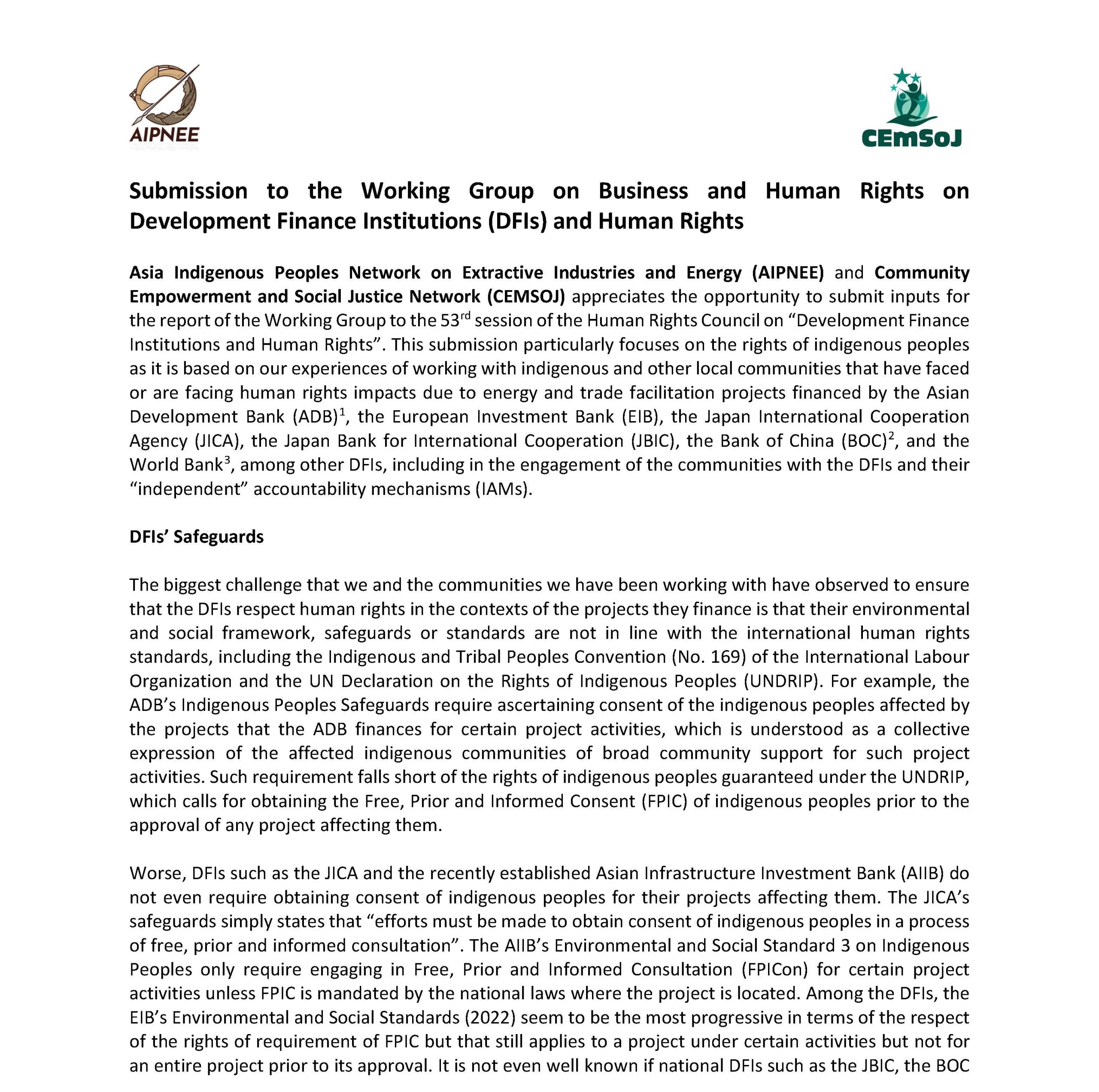Asia Indigenous Peoples Network on Extractive Industries and Energy (AIPNEE) and Community Empowerment and Social Justice Network (CEMSOJ) made a joint submission to the UN Working Group on Business and Human Rights on Monday for its forthcoming official country visit to Japan. The submission particularly focuses on the roles of Japanese institutions in providing assistance or financing projects that harm Indigenous Peoples in countries across Asia and the lack of accountability of those institutions to remedy such harms. It is based on our experiences of working with Indigenous communities that have faced or are facing human rights impacts due to energy and other projects reportedly or being (co-)financed by the Japan International Cooperation Agency (JICA)[1] and the Japan Bank for International Cooperation (JBIC)[2].
The submission details the challenges that are faced in seeking accountability of these mechanisms and accordingly provides recommendations.
more “AIPNEE and CEMSOJ’s joint submission to the UN Working Group on Business and Human Rights for its forthcoming country visit to Japan”